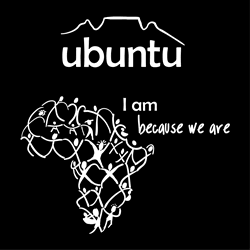
Nowadays South Africa is characterized by the existence of cultural diversity among its population due to this we can ask ourselves about ¿is it possible that employee diversity affect management at the workplace?. This question was developed in the text by Adèle Thomas and Mike Bendixen.
At first they explained that South Africa changed to be an economy really controlled by white English people to be controlled since 1998 by black consortia. This change modify the way of management in the South Asian companies due to they became to make inclusions of people from the multiplicity of ethnic groups in the country.
They concluded that management in South Africa has exactly the same way as British and American systems. According to the text, Ethnicity is defined as the distinction between groups of people based on their race, religion and language (Usunier, 1996), thus they figured out that each organization no matter if there is cultural diversity among employees, it has to set some rules in order to take control over the situation, adopting this as kind of organizational culture that involves everybody.
Finally they concluded that this study suggest ‘employee diversity at the workplace should not adversely affect management performance’.
1. What is Ubuntu? How was it applied to support the merging process of the two companies? (3 examples)
UBUNTU
Ubuntu is important in order to understand the culture, values, norms, and beliefs held by the largest segment of the population, the Africans. ‘Ubuntu can give competitive advantage to companies that incorporate its principles and practices’ Mangaliso, Mzamo. 2003. Building competitive advantage from Ubuntu.
According to the African Bank Miners Credit – Case Study it say the Ubuntu’s definition ‘Ubuntu is premised on the philosophy that one finds one’s own humanity in helping others to find theirs’.
¿How can you use Ubuntu at the workplace?
- Preeminence of the collective: That means there is a huge importance to the extended family added to the clan and the village.
- Kinship ties: they promote their relatives to trust them, in order to create a committed and harmonized environment.
- Legitimacy of authority: it means treating others as members of your family.
- Language: they worth silence, listening to the context are really important in order to establish relationships.
- Ubuntu ceremonies: those are quite important; they like to sponsor events to promote the group for example.
- Interaction: it is value by workers of the company.
- Faith: Christianity it is the dominant faith; and Isangoma it is the mediator to the creator.
- Honesty: this shows a positive impact on the entire company.
- Decision making: it is a circular process where people are entire to participate. Consensus process is very valued.
- Time: each member of ethnic group has different conception about time.
- Productivity and efficiency: there are two concepts:
1. Optimize: it is better than maximize. It is to think about what it would happen in the future.
2. Maximize: the way to use something as fast as you can. - Change: it occurs when employees feel part of the company as a family.
- Age and seniority: promotional policies and some benefits according to the age.
For African employees, the in person communication is an important feature in order to solve problems. Attending to someone in person is an indication that you respect and care for them.
‘Ubuntu can be defined as humaneness, a pervasive spirit of caring and community, harmony and hospitality, respect and responsiveness, that individuals and groups display for one another’ Mangaliso, Mzamo. Building competitive advantage from Ubuntu.
Ubuntu philosophy was used as part of the organizational culture for both companies according to the case irrespective of which ethnic group they belonged to.
- Tom Miles who leaded the idea to achieve Investors in People (IIP) recognition said that they adopted the Ubuntu philosophy to serve as the foundation for their ongoing commitment creating a working environment that is beneficial to the company and the employee.
- Drums: African Miners Credit has used drums as part of Ubuntu philosophy every employee has been given a drum; they were unified by moving to the same rhythm, it is like a symbol of communication and loyalty.
- Ubuntu booklets: in order to change management processes and the achievement of the IIP standard at African Miners Credit. Every employee was given one of the company’s booklets which explain the ubuntu culture and the contribution of employees towards the succeed campaign.
- The tale of the bird and the badger was used to explain the concept of growth as a representation of the commitment of working together.
- The elephant: that symbolized the employees’ commitment in the workplace as huge as an elephant can be. ‘Employees were told that just like the elephant, everyone has potential, and through training and hard work…’
NOTE:
See the next video that shows the promotional work and commitment to adopt Ubuntu philosophy on future business to achieve success:
Ubuntu: South Africa 2010 http://www.youtube.com/watch?v=pNZ4KsihQPQ
References
- African Bank Miners Credit – Case Study
-Thomas, Adèle & Mike. Bendixen. 2000. The Management Implications of Ethnicity in South Africa. Journal of International Business Studies, 31(3): 507-31.
http://www.ubuntuafrica.net/Images_home%20page/africa_map.gif
No hay comentarios:
Publicar un comentario